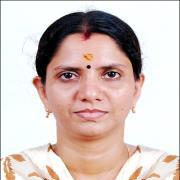International Journal of Image, Graphics and Signal Processing (IJIGSP)
IJIGSP Vol. 8, No. 6, 8 Jun. 2016
Cover page and Table of Contents: PDF (size: 585KB)
Reduction of Blur in Image by Hybrid De-convolution using Point Spread Function
Full Text (PDF, 585KB), PP.21-28
Views: 0 Downloads: 0
Author(s)
Index Terms
Blind image de-convolution, Canny edge detector, Lucy-Richardson algorithm, Maximum likelihood estimate
Abstract
Blurring of images is an unwelcome phenomenon that is difficult to avoid in many situations. It degrades the quality of a variety of images, including real life photographic images, astronomical images and medical images. In this paper a new image de-blurring algorithm is proposed using Lucy Richardson method. De-blurring is performed in two stages. To arrive at the best guestimate, an iterative method is employed as an initial step which computes the maximum likelihood estimate of the point spread function (PSF) without any prior information. In the second step, Lucy Richardson algorithm takes the PSF estimated in the initial step as its input parameter. In particular, for better processing of the image, suitable color space identification is done as a pre-processing step. This makes use of the idea of edge detectors. This paper, as a significant contribution, proposes a de-blurring technique, which uses a hybrid de-convolution method with a color space identification stage. This enables its application for a broad spectrum of images from real life photographic images to single photon emission computed tomography images as well. The performance of the algorithm is compared against other existing de-blurring algorithms and the results prove a better output in terms of blur reduction. Standard test images and real medical images are used for appraising the algorithm.
Cite This Paper
Neethu M. Sasi, Jayasree V.K.,"Reduction of Blur in Image by Hybrid De-convolution using Point Spread Function", International Journal of Image, Graphics and Signal Processing(IJIGSP), Vol.8, No.6, pp.21-28, 2016. DOI: 10.5815/ijigsp.2016.06.03
Reference
[1]M. Bertero and P. Boccacci, Introduction to Inverse Problems in Imaging, Bristol, UK, IOP Publishing, 1998.
[2]G. R. Ayers and J. C. Dainty, "Iterative blind deconvolution method and its applications", Optics Letters, 1988, 13(7): 547–549.
[3]R. G. Lane, "Blind deconvolution of speckle images", J. Opt. Soc. Am. A, vol. 9, no. 9, pp. 1508–1514, 1992.
[4]D. Kundur and D. Hatzinakos, "Blind image deconvolution", IEEE Signal Processing Magazine, 1996.
[5]Levin A, Weiss Y, Durand F, Freeman WT, "Understanding blind deconvolution algorithms", IEEE Transactions on Pattern Analysis and Machine Intelligence, 2011, vol. 33, no.12, pp.2354–2367
[6]J. M. Bioucas-Dias and M. A. T. Figueiredo, "A new TwIST: Two-step iterative shrinkage/thresholding algorithms for image restoration," IEEE Trans. on Image Processing, 2007, vol. 16, pp. 2992 – 3004.
[7]Swati Sharma, Shipra Sharma and Rajesh Mehra, "Image Restoration using Modified Lucy Richardson Algorithm in the Presence of Gaussian and Motion Blur", Advance in Electronic and Electric Engineering, Research India Publications, ISSN 2231-1297, Volume 3, Number 8 (2013), pp. 1063-1070
[8]D. Kundur and D. Hatzinakos, "Blind image restoration via recursive filtering using deterministic constraints," in Proc. Int. Conf. Acoustics Speech, and Signal Processing, vol. 4, 1996, pp. 547–549.
[9]M. Mignotte and J. Meunier, "Three-dimensional blind deconvolution of SPECT images," IEEE Transactions on Biomedical Engineering, vol. 4, no. 2, pp. 274–281, 2000.
[10]Min Jiang, Ge Wang, Skinner M.W. and Rubinstein, J.T., "Blind deblurring of spiral CT images", IEEE Transactions on Medical Imaging, Vol 22 , Issue 7, July 2003, pp. 837 – 845
[11]Tai YW, Tan P and Brown MS, "Richardson-lucy deblurring for scenes under a projective motion path", IEEE Transactions on Pattern Analysis and Machine Intelligence, 2011, vol. 33, no. 8, pp.1603–1618
[12]L. B. Lucy, "An iterative method for the rectification of observed distributions", Astronomical J., no. 79 1974, pp. 745–754.
[13]W. H. Richardson, "Bayesian-based iterative method of image restoration", J. Opt. Soc. Am., 62 (1972), pp. 55–59
[14]T. Hebert and R. Leahy, "A generalized em algorithm for 3-d bayesian reconstruction from poisson data using gibbs priors", IEEE Transactions on Medical Imaging, vol. 8, no.2, pp.194 –202, Jun 1989
[15]Canny, J., "A Computational Approach to Edge Detection" IEEE Transactions on Pattern Analysis and Machine Intelligence, Vol. 8, No. 6, November 1986, pp. 679-714.
[16]L.A.Shepp and Y.Vardi; "Maximum Likelihood Reconstruction for Emission Tomography", IEEE Transactions on Medical Imaging, Vol. MI.1, No.2, October 1982, pp.113-122
[17]T. J. Holmes, "Blind deconvolution of quantum-limited incoherent imagery: maximum-likelihood approach," Journal of the Optical Society of America A, vol. 9, no. 7, pp. 1052–1061, 1992
[18]J. M. Tenenbaum, "Accommodation in computer vision", PhD thesis, Stanford, CA, USA, 1971
[19]Frederique Crete, Thierry Dolmiere, Patricia Ladret, Marina Nicolas, "The Blur Effect: Perception and Estimation with a New No-Reference Perceptual Blur Metric", SPIE Electronic Imaging Symposium Conf Human Vision and Electronic Imaging, San Jose : États-Unis d'Amérique (2007)

